Fundraising Guidelines
Planning
- Endeavour to sell any tickets prior to an event to reduce the need for cash collection on the day of an event.
- Make pricing of tickets or goods for sale sensible (for example €1, €10, €100 etc) in order to minimise cash handling. All tickets for sale are pre-numbered and sales and takings reconciled.
- Consider ways in which cash can be held securely, for example, through the use of money belts.
At the Event
- Issue round quantities of tickets or programmes with sellers signing for the quantity received.
- Unsold tickets or programmes are returned and reconciled with the record of cash received from each seller.
- Discrepancies should be investigated without delay.
- To avoid sellers accumulating significant amounts of cash, pre-designated collectors should collect cash. Alternatively, secure cash-receiving locations should be available to sellers.
- Collections are recorded on a summary with a signature from the sellers signifying the amount of cash collected. In certain circumstances it may not be practical for cash to be counted at interim stages during the course of an event, however a record that a collection has been made should be evidenced by signatures from both collectors and sellers.
- All final amounts including floats are collected and recorded from all locations at the end of an event. Public Collections You need a permit from the Gardaí to collect funds on the street or in a public place. While the owners of some private properties including pubs and shopping centres may allow collections onsite you should always check with the Gardaí on the need for a permit. Permits may take a few weeks or even months to obtain, so advance planning is necessary. Raffles and Lotteries Simple raffles at one-off events usually do not require a license but raffles involving tickets sold in advance may require one. Check with your local Garda station. Health and Safety You should ensure that your event is organised efficiently and safely. Ensure that participants are fully briefed about the event, including (where relevant) any risks, fitness requirements, special equipment or clothing required, and standards of behaviour expected. Always check if a hired venue has adequate safety procedures in place; trained first-aid personnel may be required particularly if outdoor venues are used.
Outdoor events may also require you to notify local authorities or to obtain special permissions. Risk assessment reports may be necessary when applying for permission. Supervision Ensure that your event is properly and adequately supervised.
Where children are attending, this includes:
- Providing proper adult supervision at all times in a safe and secure environment
- Checking that the child’s parents/guardians have given permission for their child to take part Insurance Consider what insurance cover you need for your event.
Owners of venues with public access should have adequate cover in place, but certain categories of events demand additional or specified insurance cover e.g. large scale outdoor events, adventure pursuits and may have age restrictions etc. Additional insurance coverage may have to be factored into your budget.
Fundraising materials and publicity
All of your fundraising communications should make it clear that you are fundraising in aid of Children’s Health Foundation rather than acting formally on behalf of the organisation. You should always check with us before using our logo in promotional or publicity material. If you are using imagery, please do ensure that you have the rights and permission to use same.
Transparency
A breakdown of costs and income should be available if members of the public request these details. Managing Funds As the organiser, you are responsible for the financial management of your fundraising activity.
We’ve outlined some guidelines that might help you with this:
Funds can be collected in the form of cash or cheques (these should be made out to Children’s Health Foundation)
Cash should be counted in a secure environment and held in a secure place until it is possible to bank it. No expenses can be incurred in the name of Children’s Health Foundation without express prior agreement in writing from Children’s Health Foundation.
Children’s Health Foundation will issue you with a receipt recording the amount of the donation after all funds have been remitted. Once again, we would ask that you remit funds to us as soon as possible after your event, and within 30 days. We’d like to give you a total amount raised from your event as soon as possible afterwards so you can tell everyone who contributed that you’ve achieved your goal! For online giving sites such as Just Giving, iDonate etc, a fee is taken for using the platform. We recommend Just Giving as we have an account with them to cover these fees.
We will endeavour to assist you in any way we can, however we also cannot accept responsibility for any errors or omissions on your part.
While we are very appreciative of your support, Children’s Health Foundation cannot organise, supervise, or host your fundraising activity.
If you exceed your fundraising target, firstly, thank you – that’s amazing! We really appreciate your hard work to raise these funds for Children’s Health Foundation. We will use any extra funds to go where they are needed most, ensuring that every sick child has the best chance across CHI hospitals and urgent care centres.
Data Protection
During the course of your event you may get access to people’s personal data on sponsorship cards, on letters or emails to you, or from event participants. After the event is complete you should destroy any lists with personal details you have made yourself and return printed sponsor cards to Children’s Health Foundation where we will ensure they are processed and then destroyed securely.
If you are unsure about what you should and shouldn’t do, especially where it comes to Child Protection, Data Protection, legalities or financial regulation, please give us a call on 01 709 1700 and we’ll be happy to guide you.
THANK YOU FOR YOUR SUPPORT

